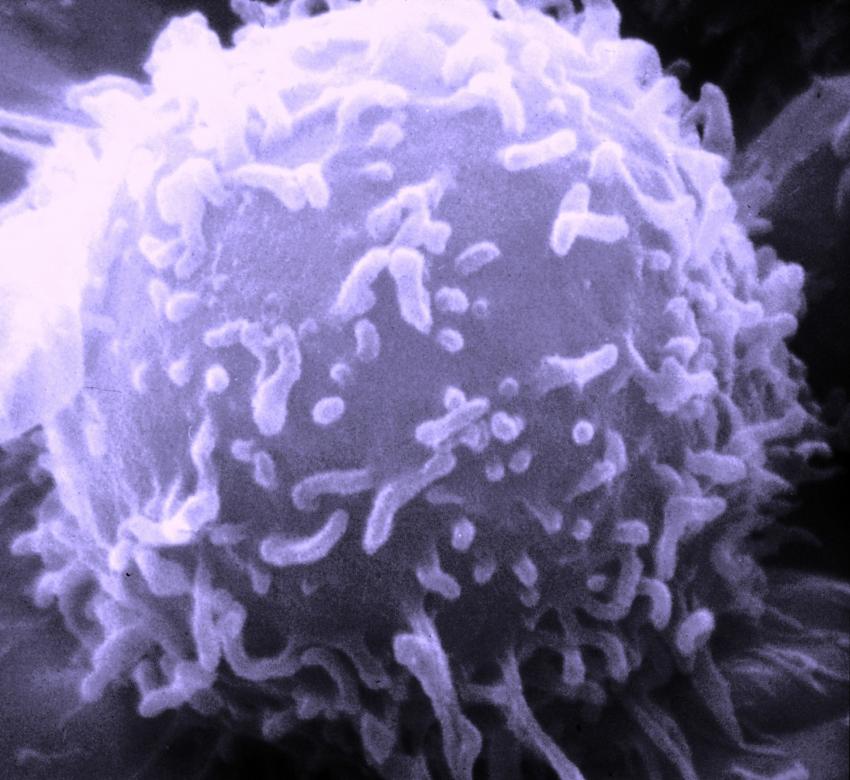(Medical Xpress)—A large team of researchers from a host of research facilities across Japan has found some genetic variants in some cancer cells that lead to enhanced PD-L1 protein production—which results in increased protection against attacks by the immune system. In their paper published in the journal Nature, the team describes their sequencing study involving adult T-cell leukemia/lymphoma cases, what they found and the possibility that such variants could be used as identifying markers in cancer patients.
Prior studies have shown that an increase in the expression of the protein PD-L1 by cancer cells confers enhanced protection against attacks by the human immune system—PD-1 receptors on T cells bind with PD-L1 causing the immune cells to become unresponsive, preventing them from attacking tumors. In this new effort, the researchers conducted a genetic analysis of a particular type of cancer cell to learn more about the genetic process involved in causing an increase in expression of PD-L1.
The team conducted whole-genome sequencing on samples given by 49 adult patients suffering from leukemia or lymphoma, looking specifically for variations that might account for an increase in expression of PD-L1. In so doing, they found that variations such as duplications, inversions or translocations in 13 of the samples, representing 27 percent of those tested, existed on a certain part of chromosome 9, which prior research had found was the part of the genome responsible for the expression of PD-L1. They report that such alterations seemed to cut off the gene’s 3’ untranslated region of the protein and in some cases led to rearranging the gene’s open reading frame, which allowed more of the protein to be expressed.
